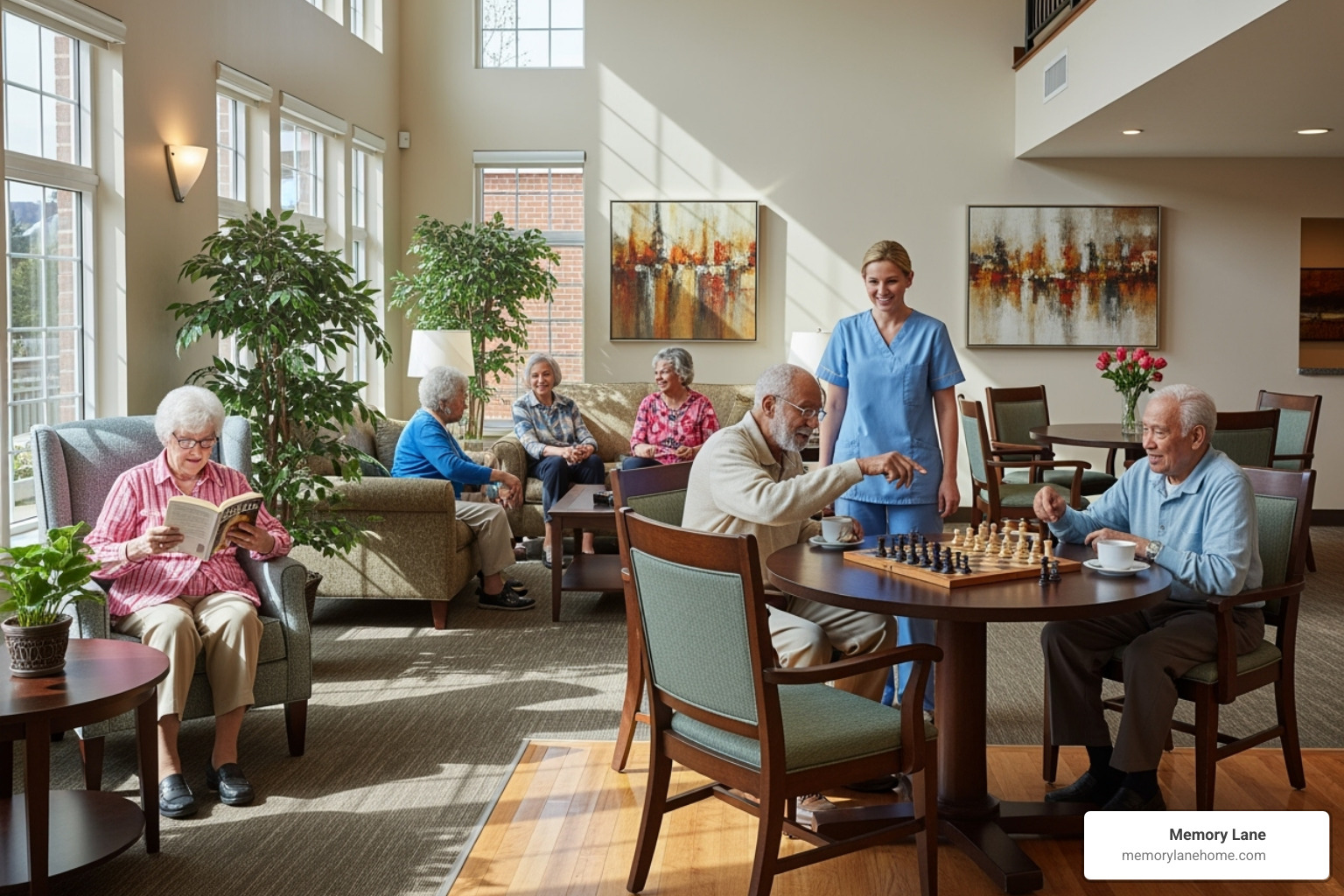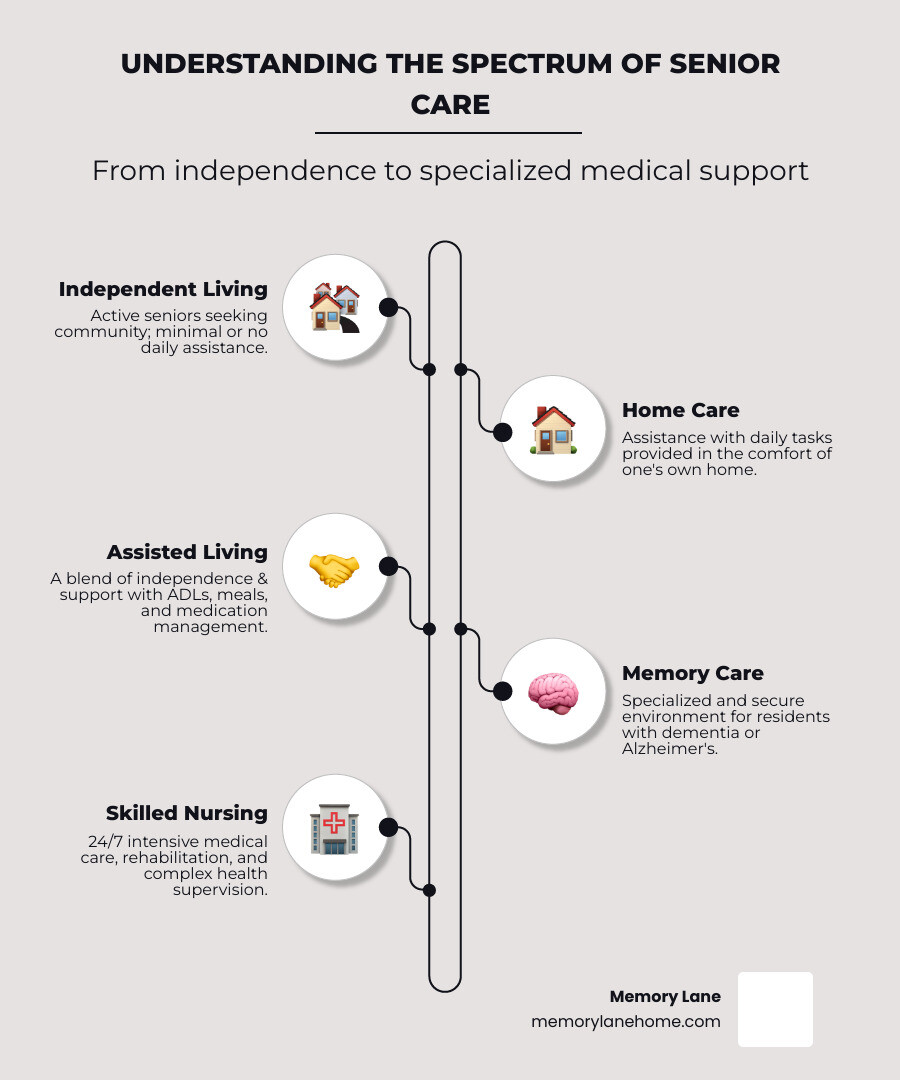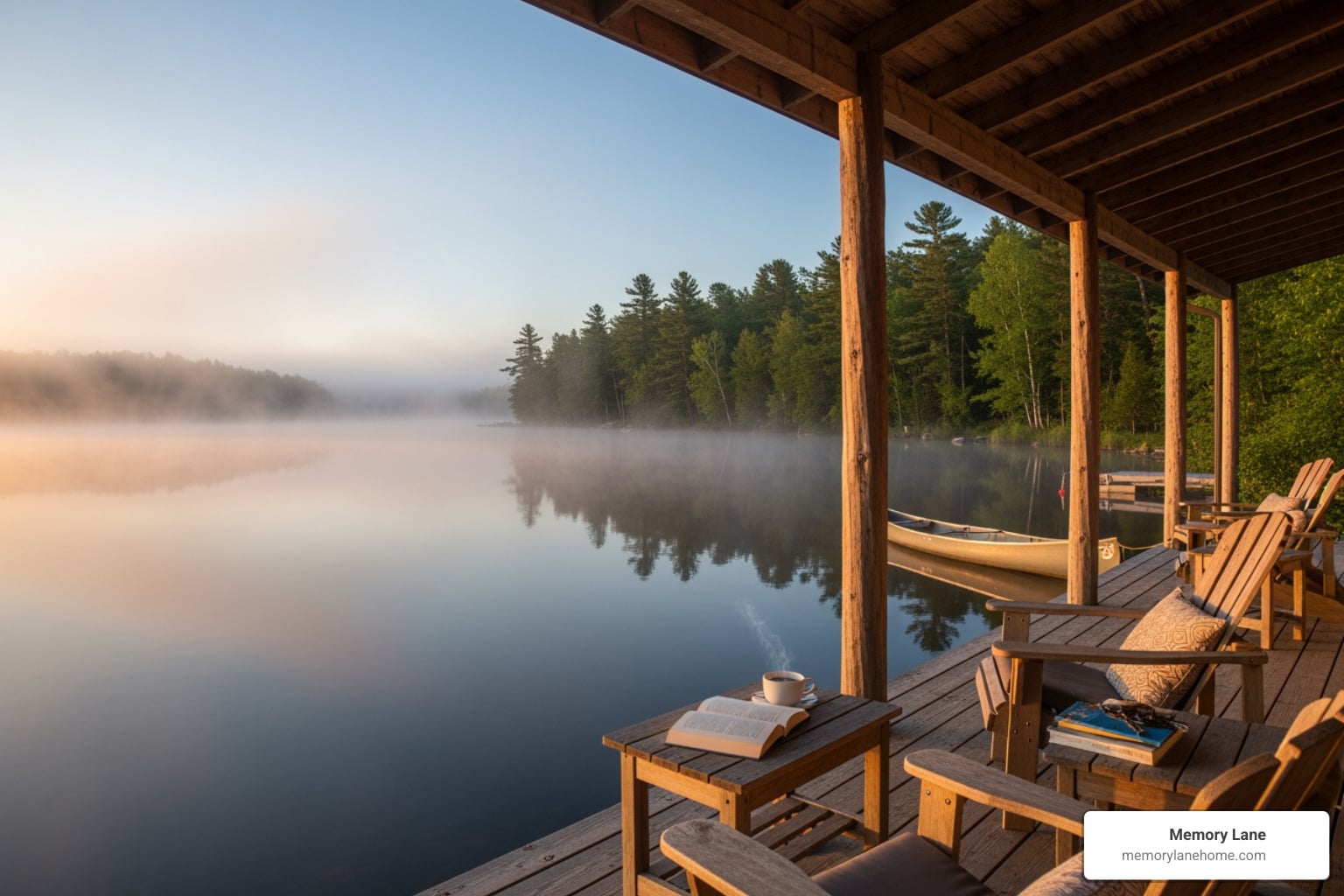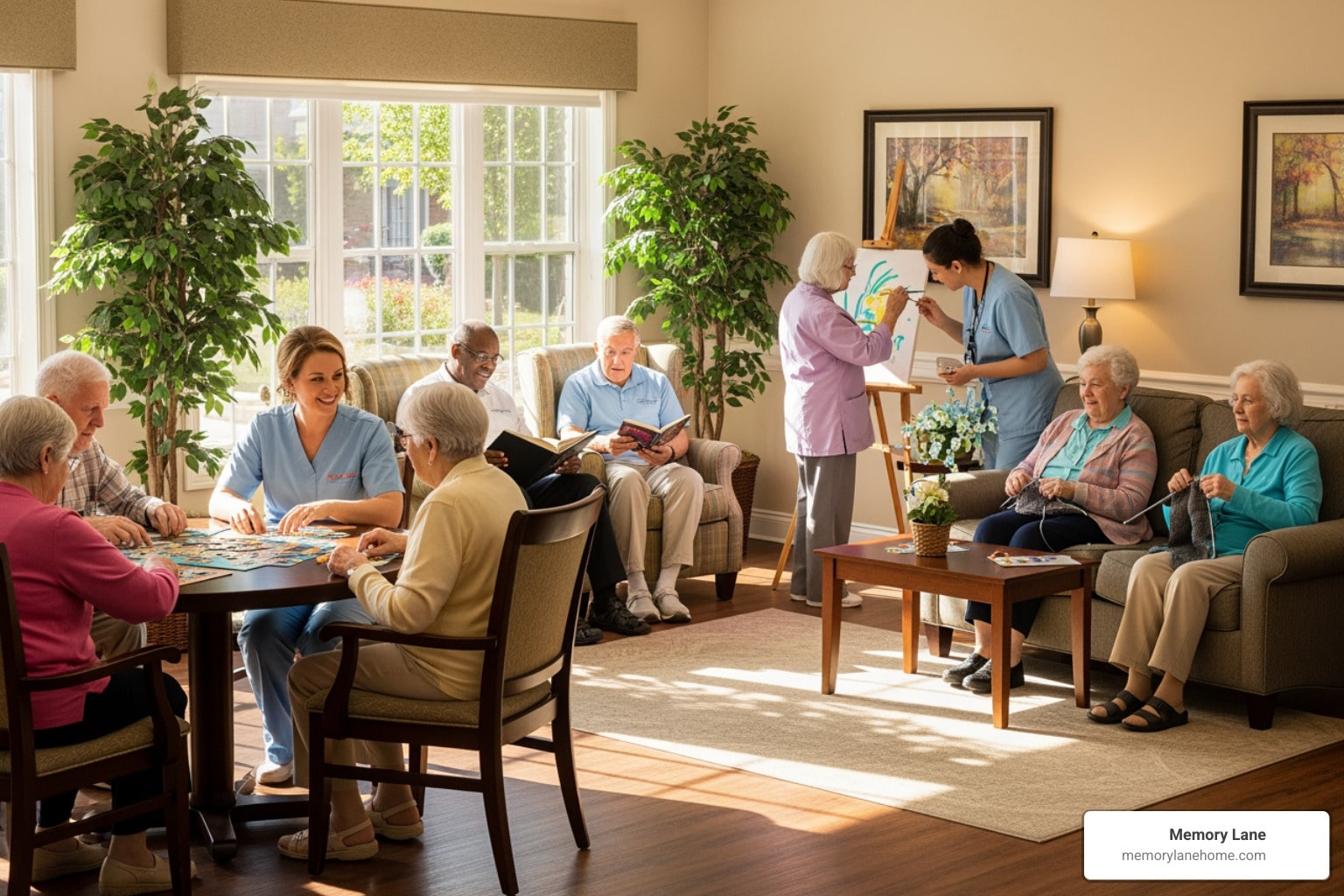Your guide to assisted living Michigan: explore costs, services, financial aid, and top communities for senior care.

Your Local Compass: Discover Assisted Living Near Me
Assisted Living Facility Near Me 2025: Your Perfect Guide
Why Finding the Right Assisted Living Matters Now
Searching for an assisted living facility near me is a major step when a loved one needs more support. Here’s a quick guide to get you started:
Quick Answer: How to Find an Assisted Living Facility Near You
- Assess needs: Consider medical, daily living, and social requirements.
- Determine your budget: Average costs can range from $4,050-$5,375 per month.
- Use online directories: Search by location and filter by services.
- Tour facilities: Schedule in-person visits to see the environment and meet staff.
- Check licensing and reviews: Verify credentials and read family testimonials.
- Ask about care plans: Ensure personalized support for conditions like dementia.
The search for senior care can be overwhelming. You’re not just looking for a place—you’re looking for safety, dignity, and quality of life.
Assisted living offers a balance between independent living and a nursing home, providing housing, hospitality, and personal care. Residents receive help with tasks like bathing, dressing, and medication management while staying as independent as possible.
The right facility feels like a home with support, where your loved one can socialize, engage in activities, and receive professional care, giving you peace of mind.
I’m Jason Setsuda, a Board Certified Emergency Medicine Physician and CFO of Memory Lane Assisted Living. With over 10 years of experience working with seniors, I’ve seen how crucial it is to find a facility that truly understands cognitive decline and provides compassionate, specialized care.

What is Assisted Living and How Does it Differ from Other Senior Care?
When you search for an assisted living facility near me, it helps to know what assisted living is—and isn’t. It’s the sweet spot between living alone and needing round-the-clock medical care.
Assisted living is for adults who value their independence but need a hand with daily tasks. Whether it’s getting dressed, managing medications, or keeping up with meals and housework, assisted living provides support while letting residents live on their own terms. The goal is to help people maintain their independence and enjoy a high quality of life. Residents live in private rooms or apartments but have access to meal preparation, housekeeping, and personal care.
It’s ideal for seniors who can still participate in decisions about their care but need help with activities of daily living (ADLs) like bathing, dressing, or grooming. The social environment and 24-hour emergency response also provide significant peace of mind.
How Assisted Living Fits Into the Bigger Picture
Understanding the spectrum of senior care helps you choose wisely.
Independent living is for active seniors who want a maintenance-free lifestyle with social opportunities, but don’t need daily care.
Skilled nursing facilities (nursing homes) provide 24-hour medical support for individuals with significant health needs who require constant supervision.
Memory care is a specialized form of assisted living for individuals with Alzheimer’s or other dementias. At Memory Lane, we provide this support in a secure environment with staff trained in dementia care, using custom care plans and cognitive therapies to improve quality of life.
Comparing Assisted Living and Memory Care
While both are supportive, there are key differences between general assisted living and specialized memory care:
| Feature | Assisted Living | Memory Care (e.g., Memory Lane) |
|---|---|---|
| Purpose | To provide a supportive environment for seniors who need assistance with daily living tasks but can still make decisions for themselves. | To provide specialized care and a secure, supportive environment for individuals with dementia or Alzheimer’s. |
| Ideal Resident | Individuals who are generally independent but need help with some daily activities (e.g., bathing, dressing, medication management). They can make decisions and participate in social activities. | Individuals experiencing cognitive decline, memory loss, or behavioral challenges associated with dementia. They require 24/7 supervision and custom support. |
| Key Services | Assistance with activities of daily living (ADLs), medication management, meals, housekeeping, laundry, social activities, 24-hour emergency response. | All Assisted Living services, plus specialized memory care programs, secure environment, trained staff in dementia care, behavioral support, structured routines, engaging cognitive activities. |
| Environment | Encourages independence, offers private living spaces, social common areas. | Designed to reduce confusion and prevent wandering, often with specific layouts, secure outdoor spaces, and a calm atmosphere. |
| Focus | Maintaining independence, social engagement, and a comfortable lifestyle with support. | Enhancing quality of life, managing symptoms of cognitive decline, providing a safe and nurturing environment, supporting families. |
The bottom line? Assisted living is great for seniors who need some help but can still make their own decisions. Memory care is necessary when cognitive decline requires specialized support, structured routines, and a secure environment designed for dementia care.
A Look at Daily Life: Services, Amenities, and Care
Imagine a day where household chores are lifted, and your loved one is surrounded by friends, engaging activities, and compassionate care. That’s the essence of daily life in a quality assisted living facility.
Daily life in assisted living balances privacy with community. Residents have their own private studios or apartments but benefit from shared spaces and services that make life easier.
These “hospitality services” form the backbone of a comfortable lifestyle:
- Meals: Residents enjoy nutritious, chef-prepared meals in a restaurant-style dining room, eliminating the need to cook and clean. Special dietary needs are accommodated, and menus often include resident favorites.
- Housekeeping: Weekly housekeeping keeps living spaces clean and tidy.
- Laundry: Laundering of towels and linen is typically included, with personal laundry services often available.
Personal care services are a cornerstone of assisted living, providing support to maintain dignity and well-being:
- Activities of Daily Living (ADLs): This includes scheduled assistance with personal tasks such as bathing, dressing, grooming, and mobility.
- Medication Management: Trained staff help organize and administer medications, ensuring residents take the right dose at the right time. This is a critical service for residents and their families.
- 24-hour Emergency Response: Rooms and common areas are equipped with an emergency alert system, with staff on-site 24/7 to respond to urgent needs.
A vibrant community also emphasizes social engagement and personal enrichment through a wide array of activities:
- Scheduled Activities: Calendars are often packed with shopping trips, bingo, social hours, educational lectures, music programs, and fitness classes like chair yoga. The goal is to provide opportunities for recreation, learning, and connection.
- Personalized Care Plans: For those with specific needs like dementia, personalized care plans are crucial. At Memory Lane, we specialize in 24/7 personalized, compassionate support. Our custom care plans ensure each resident receives care that respects their individual needs, focusing on enhancing their quality of life. We offer engaging activities designed to stimulate cognitive function in a secure environment, creating a daily routine that is both supportive and enriching.
Understanding Costs, Eligibility, and Financial Aid
Let’s talk about the financial side of finding an assisted living facility near me. Understanding costs and qualifications helps you plan and find the right fit for your family’s budget.
What Does Assisted Living Actually Cost?
The honest answer? It varies. Location, level of care, and amenities all play a role. On average, you might see monthly costs for a private room ranging from $4,000 to over $5,500. These are ballpark figures, so always get specific pricing from any facility you are seriously considering.
What’s Included in That Monthly Fee?
Generally, the monthly fee covers your private living space, meals, housekeeping, laundry, and personal care assistance like help with bathing, dressing, and medication management.
However, not everything is always included in the base rate. Some facilities charge extra for telephone service, cable TV, utilities, or specialized care. Always ask for a detailed service agreement so you know exactly what you’re paying for and what might cost extra.
Who Qualifies for Assisted Living?
Assisted living is for people who can maintain some independence but need support with daily tasks. General criteria include:
- The ability to live safely in the residence.
- The capacity to make their own decisions (or live with a spouse who can assist).
- The ability to follow directions from staff in an emergency.
- Not exhibiting behaviors that might endanger others.
- Not requiring frequent, unscheduled professional health services.
For specialized memory care, like what we provide at Memory Lane, the focus is on individuals with cognitive decline who benefit from a secure environment, trained staff, and specialized programming.
How Do You Pay for All This?
Several options can help families cover assisted living costs:
- Private Pay: Many families use savings, pensions, retirement income, or proceeds from selling a home.
- Long-Term Care Insurance: If your loved one has a policy, review it carefully. Many policies cover a significant portion of assisted living costs.
- Veterans Benefits: The VA’s Aid and Attendance benefit can help cover costs for veterans (and their surviving spouses) who need help with daily activities.
- Subsidized Options: In some areas, you may find subsidized assisted living programs, often run as partnerships between government agencies and care providers. For eligible seniors, the cost may be based on income. These programs have specific requirements, so it’s worth researching what’s available in your state.
- Medicaid: While Medicare generally doesn’t cover long-term custodial care, Medicaid—a state and federal program for low-income individuals—may provide assistance for certain assisted living services in some states. You can learn more about Information on Medicare coverage and find broader guidance through Resources from US Human Services.
My advice: Start the financial conversation early. Talk to a case manager or financial advisor to understand your options, identify potential programs, and create a realistic budget. Planning ahead reduces stress and gives you more choices.
Your Guide to Finding an Assisted Living Facility Near Me
Finding the right assisted living facility near me is about finding a home where your loved one will feel safe, valued, and cared for. Let’s walk through the process step by step.

Step 1: How to start your search for an assisted living facility near me
Before you start calling facilities, sit down with your family to honestly assess your loved one’s needs.
- Medical Needs: Do they have chronic conditions? How is their mobility? Do they need help with medications? If they are experiencing memory loss or signs of dementia, they will need specialized memory care. At Memory Lane, we provide 24/7 personalized care in a secure environment designed for those with cognitive decline.
- Daily Living Needs: How much help do they need with bathing, dressing, or meals? This will determine the level of care required.
- Social Personality: Are they outgoing or more reserved? The right facility will offer activities that match their interests.
- Budget: Having a clear budget helps focus your search on realistic options.
Once you know what you’re looking for, start your search. Online directories are helpful for finding facilities in your area, allowing you to filter by location and services. Also, don’t overlook your local Area Agency on Aging or senior advocacy groups. They can provide unbiased information and connect you with licensed facilities.
Step 2: Vetting Your Options and Touring Facilities
Once you have a shortlist, it’s time to do some homework before you visit.
Always verify licensing and check inspection reports. This is crucial. You need to know that any facility you’re considering is properly licensed and meets state regulations. This information is often available online through your state’s department of health or licensing board.
Next, schedule tours at different times of the day to get a full picture. Observe how staff interact with residents. Do residents seem happy and engaged? Notice the details: Is the facility clean and bright? Does it smell fresh? Trust your gut—if a place feels warm and welcoming, that matters.
Step 3: Key questions to ask about an assisted living facility near me
Come to your tours prepared with questions. This is your loved one’s future home, and you deserve complete answers.
- Staffing: What are the staffing ratios, especially on evenings and weekends?
- Care Plans: How do you develop and update care plans? At Memory Lane, our custom care plans are central to what we do and are reviewed regularly.
- Staff Training: What specific training does the staff receive, particularly for dementia and Alzheimer’s care?
- Activities: Can I see a sample activity calendar? For memory care, what cognitive stimulation programs do you offer?
- Emergencies: What are your procedures for a medical crisis or other emergencies?
- Costs: What is included in the monthly fee, and what costs extra?
- Visitor Policy: What is the policy for family visits?
- Health Changes: How do you handle a resident’s changing health needs? What is the process if more care is required?
- Security (for Memory Care): How do you prevent wandering and keep residents safe while preserving their dignity?
- Philosophy of Care: What is the facility’s core philosophy? Do they focus on what residents can do, not what they can’t?
Finding the right assisted living facility near me takes time. Ask hard questions and trust your instincts. You know your loved one best, and you’ll know when you’ve found the right place.
Conclusion: Taking the Next Step with Confidence
The journey to find the right assisted living facility near me is a personal one, aimed at finding a place where your loved one will be safe, connected, and cared for. We’ve covered what assisted living is, what daily life looks like, and how to handle the practicalities of cost and eligibility.
For families whose loved ones are living with dementia or Alzheimer’s, the search often leads to specialized memory care. While traditional assisted living is helpful, the unique challenges of cognitive decline require a more focused approach. It’s about creating a secure and understanding environment where someone with dementia can experience joy, dignity, and connection.
This is where specialized memory care makes all the difference. It involves staff trained in dementia care, activities designed to engage the mind, and an environment that gives families peace of mind.
At Memory Lane, we have built our community around this understanding. We offer 24/7 personalized, compassionate support for individuals with dementia and Alzheimer’s. Our custom care plans, engaging activities, and secure environment are all designed to improve our residents’ quality of life.
We believe a dementia diagnosis doesn’t mean life stops being worth living—it means the care needs to be more thoughtful and specialized. If your loved one is experiencing memory loss, we invite you to see what specialized memory care can offer. Learn more about specialized dementia care services and find out how Memory Lane can support your family’s journey.



